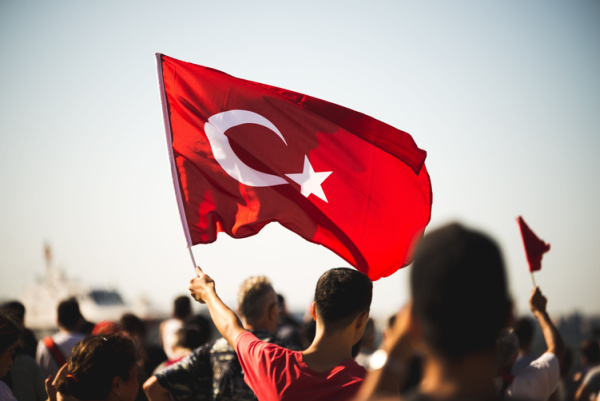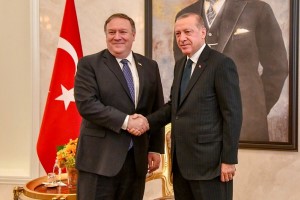Can the Turkish Opposition Win Without Promising Social Change?
By Barış Soydan
March 24, 2022
While the disaster that struck Turkey on February 6 has brought attention to the collusion between political power and construction companies, the fact that the opposition maintains the same unhealthy relations with business where it’s in charge and its reluctance to address the concerns of the poorer classes preclude deeper, systemic changes if it wins the election. But without holding out the prospect of major social and economic reform, it remains to be seen whether the opposition succeeds in beating Recep Tayyip Erdoğan.

From Pro-Americanism to Anti-Imperialism: The Historic Turn of the Turkish Nationalist Right
By Halil Karaveli
September 21, 2020
Turkey’s pursuit of its geopolitical objectives in the eastern Mediterranean has historically not aligned with what used to be its paramount national security priority, to maintain a “strategic partnership” with the United States. The clash of foreign policy priorities has fuelled divisions in the Turkish military, between conservative pro-Americans and left-leaning, self-described anti-imperialists. Today though, the right-wing nationalists have embraced the anti-imperialism of the nationalist left. That is a profound change.

The Kurdish Issue and Turkey’s Narrowing Tunnel
By Gareth H. Jenkins
September 19, 2016
The Turkish government’s recent dismissal of elected Kurdish officials from local authorities in the southeast and its preparations to prosecute Kurdish members of parliament risk exacerbating social tensions at a time of already severe domestic political turbulence.
The Rise of Diyanet: the Politicization of Turkey’s Directorate of Religious Affairs
By Svante Cornell
October 9th, 2015, The Turkey Analyst
Since 2010, the State Directorate for Religious Affairs has risen in prominence. Diyanet’s budget has quadrupled under the AKP, and the Directorate now issues fatwas on demand, as well as wading into political issues and backing up the AKP position. Moreover, Diyanet has drastically increased its provision of Quran courses for students of all ages. The Diyanet, originally created by the Turkish state to exercise oversight over religious affairs, is now firmly under the control of President Erdoğan, and has turned into a supersized government bureaucracy for the promotion of Sunni Islam.
Intertwined legacies: authoritarianism and democracy in Turkey after November 1
By Nick Danforth
September 23rd, 2015, The Turkey Analyst
Turkey’s democratic and authoritarian legacies have been thoroughly intertwined from the outset. President Recep Tayyip Erdoğan’s authoritarian instincts have been both motivated and enabled by the authoritarian behavior of his predecessors. Yet Erdoğan is also restrained by institutional forces that remain in place because military and civilian leaders before him proved willing to step down and compromise. And he is moreover restrained by the instincts of voters and some within his own party who value Turkey’s democratic tradition.





